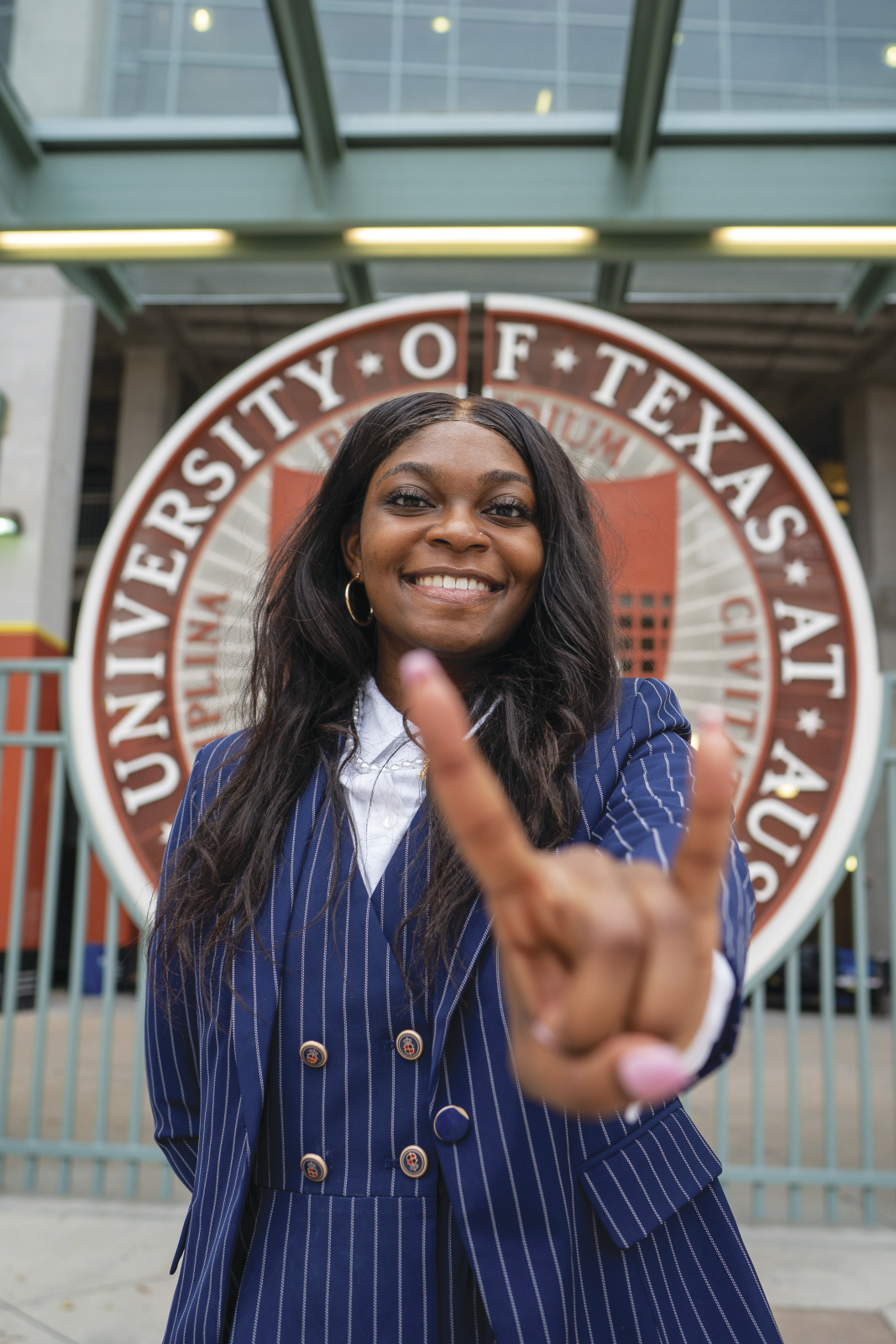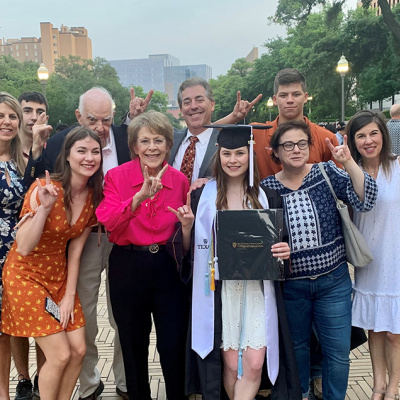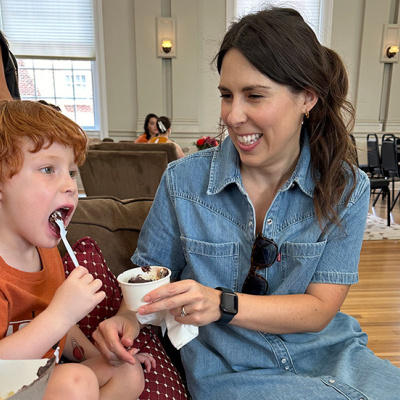UT’s New Student Body President Plans to Bring Longhorns Together

Kiara Kabbara has never met a stranger. At least, that’s how her friends often describe the gregarious UT Austin senior who hails from South Dallas. She’s the kind of person who makes friends wherever she goes.
“I will talk to anybody,” she tells me with a beaming smile. “I don’t care who it is or what we’re talking about, I’m always optimistic and positive about everything.”
It’s that kind of attitude and spirit that got her where she is today: leading the UT student body as the first Black woman president in more than 30 years through what is sure to be another eventful school year. In March, students participated in the first-ever completely virtual election and elected Kabbara and Ethan Jones to be their new Student Government president and vice president. As students prepare to go back to school after more than a year of taking courses online, Kabbara is eager to get to work.
When we speak in July, Kabbara is gearing up to launch something big: a UT Austin “homecoming” week. Starting Sunday, Sept. 12, Kabbara has a series of daily activities planned for students and alumni. The week includes a Longhorn Run, a blood drive, a concert, and the revival of the Orange and White Ball, a university-wide gala. The festivities tie up nicely with the Longhorn football game against Rice University on Saturday. This was her idea to bring alumni back to campus and show current students what being a Longhorn is all about. “We’ve been online for over a year now,” she says. “I’m looking to bring some Texas fight back to campus.
School pride and campus involvement have always been important to the pre-law and government senior. Last year, she reestablished the National Association for the Advancement of Colored people on campus; in 2019, she served as the public relations chair for the Big 12 Black Student Government Board; and in 2018, she was president of the Shadowing Committee of the Black Health Professions Organization, helping Black students in health care get more experience following doctors.
But she never expected her path to look quite like this, or to be so heavily involved in leadership positions—in fact, she didn’t even see herself on the Forty Acres, despite it being the only Texas school she applied to. At heart, Kabbara says she’s “a sports girl,” and in high school was being heavily recruited to play basketball at various out-of-state schools. But during her senior year, she tore her ACL. Leaving Texas no longer seemed like an option for the Dallas native.
“I was like, what am I going to do?” she says. “All of my life, I played basketball. That’s who I am. Honestly, athletics is the only way that I thought I could even go to college.”
But thanks to her high ranking in her graduating high school class, she automatically got accepted into UT. She received a scholarship from the University Leadership Network, a nationally recognized incentive-based scholarship program, and a few others here and there, and was able to enroll on campus.
Kabbara arrived at UT as a freshman in the fall of 2018. Academically, she struggled more than she expected to. And though her outgoing personality made making friends easy enough, coming to UT was a culture shock. Her high school in South Dallas, Lincoln High School, was composed of about 98 percent Black students. “My school was very underfunded, under-everything, really,” she says. “We didn’t have the best teachers; we barely had any.”
She says ever since she realized the disparities between her community and better-funded areas, she’s been interested in politics. In high school, she got involved with the Dallas Independent School District, campaigning for board members she thought would serve her school best.
Her experiences growing up in Dallas and her first year on campus—from suddenly being on a campus that has a Black student population of less than 5 percent to her months studying abroad in Costa Rica—influenced her decision to run for SG president, a plan she has had since her since her freshman year.
She and Jones, her VP and a public relations and business honors senior, have an extensive platform that focuses on equity and inclusivity. “Our platform actively tackles the systemic and structural issues at UT by creating space for all communities to proactively ensure their voices are not only a part of university decision-making but drive these conversations as a whole,” their campaign website reads.

Aside from their work on a UT homecoming, Kabbara and Jones have lofty but reachable plans. Kabbara notes that she’s working with Services for Students with Disabilities on creating a weekend dedicated to students who have disabilities. She wants UT to partner with Historically Black Universities to allow students to fulfill their Cultural Diversity Flag by taking online courses at those institutions. She has plans to partner with UT Outpost to secure funds from the Student Services Budgeting Committee to address food insecurity at UT. And she wants to hold an “unprecedented times” post mortem, examining protocols instituted during the COVID-19 pandemic and determine ways to be better prepared for the next unprecedented crisis.
Everything Kabbara does, she holds onto the idea that student voices are powerful. Whether it’s navigating division over “The Eyes of Texas,” or figuring out how to make housing more accessible to students, she believes Longhorns are a powerful force.
“I feel like being a Longhorn—I’m not trying to be corny—is being somebody who’s really ready to change the world and their perspective,” she says. “It’s about serving others based on what you’re good at.”
On top of all that she has planned, Kabbara says her schedule for the month of August is already mapped out. She’ll be studying for the LSAT, keeping herself on a tight schedule before the school year starts. Getting her law degree is part of the bigger dream: to return to her hometown and represent one of the South Dallas districts.
“This is what I love,” she says. “I love helping people. I want to do what I’ve been called to do.”
Credits (from top): Kasim Kabbara, Ricardo Ramos






